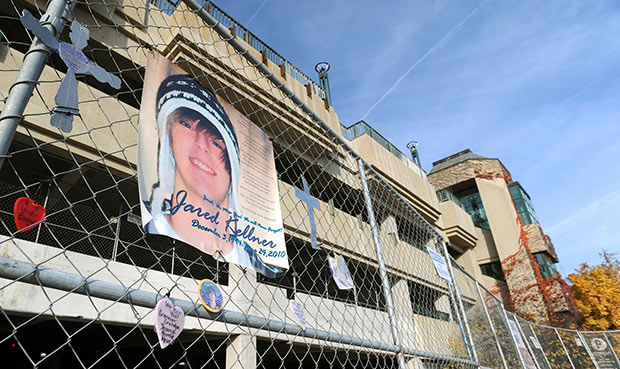Lawyers: Foxconn lawsuit not your typical eminent-domain dispute
By: Rick Benedict//January 23, 2018//
Lawyers: Foxconn lawsuit not your typical eminent-domain dispute
By: Rick Benedict//January 23, 2018//

Wisconsin lawyers say a novel eminent-domain argument is being made in a recent lawsuit filed by several landowners in Mount Pleasant who are trying to prevent their property from being taken for projects related to Foxonn’s plans to build a $10 billion factory nearby.
But in large part because the contentions they are making are slightly unorthodox, the plaintiffs are faced with an “uphill battle,” they added.
Seven landowners who live near the site where the Foxconn Technology Group plans to have a $10 billion manufacturing campus are now suing the village of Mount Pleasant and its president, Dave DeGroot. Among other things, they are alleging that the village, in acquiring their properties through the use of eminent domain, is violating their constitutional rights to equal protection, private property and due process.
All of the plaintiffs have this in common: They own properties that are being acquired for road projects related to Foxconn’s plans. Although eminent domain is commonly invoked by governments seeking land for public works, the plaintiffs in this case argue their situation is different. Their land, they contend, wouldn’t be needed for road improvements if it weren’t for Foxconn’s factory — a private project.
Certain aspects of this case set it apart from ordinary eminent-domain disputes, said Murphy Desmond attorney Matthew Fleming, who represents both public- and private-sector clients in municipal law and related areas. Specifically, he noted, the plaintiffs are citing a law that was passed in response to a decision the U.S. Supreme Court made in 2005 in the case of Kelo v. City of New London, he said.
The high court in that case found that government entities are acting within their rights when they condemn and acquire properties and then sell them for use in private developments. In reaching that conclusion, the justices reasoned that economic development benefits far more than the particular group of investors or owners involved in a given project.

The decision set off alarm bells among property-rights advocates. The state Legislature and then-Gov. Jim Doyle responded by enacting a law prohibiting the taking of non-blighted property and tweaking the definition of “blighted property.”
Yet, despite the Legislature’s clear intentions, some ambiguity continues to shroud the law. Fleming said he is unsure whether any court has weighed in on the limits the new statute would impose in a situation like the one presented by Foxconn.
“This clearly isn’t a routine eminent-domain case in any sense,” Fleming said.
Separate from the questions concerning eminent domain are the allegations of possible violations of constitutional rights. Daniel Bach, a lawyer who represents property owners in eminent-domain cases, said those allegations have had an effect on where the dispute is being heard.
Bach said eminent-domain cases are usually filed in circuit court in the same county containing whatever property is at the center of a given dispute. But since the plaintiffs in this Foxconn-related case are alleging violations of their constitutional rights, their suit has instead been filed in the U.S. District Court for the Eastern District of Wisconsin.
In an email, Bach predicted that if the federal court deems the plaintiffs’ arguments legitimate, “no doubt the U.S. Supreme Court’s decision in Kelo will be center stage.”
The landowners argue that their land is being taken for a non-public purpose because the proposed road improvements wouldn’t be in the plans if it weren’t for the Foxconn project.
“Speaking strictly about the condemnation issue … it would seem to be an uphill battle to claim that a road widening or installation does not constitute a public purpose,” Bach said.
The argument reminded Fleming of a lawsuit filed in an ongoing dispute involving Whistling Straits Golf Course. In that case, property owners sued the Wisconsin Department of Transportation over its plans to acquire some of their land to build interstate ramps near the course. The new ramps were being put in specifically to accommodate heavy traffic during golf tournaments.
In both cases, the plaintiff’s chief difficulty lies in proving that the new roads and interstate ramps are not benefiting the public.
Roads are “almost always” built for public purposes, Fleming said.
Bach said the plaintiffs in the Foxconn case are raising a “more interesting question” when they argue that the village of Mount Pleasant isn’t fairly compensating them for their land. Their complaint notes that the plaintiffs, for no better reason than that their land abuts roadways, are being offered a fraction of the prices that some of their neighbors are getting.
Separately, the property owners are arguing that their rights to equal protection are being violated because the Foxconn development isn’t being required to comply with the same environmental regulations applying to similar projects throughout the state. In assembling a $3 billion incentive package to draw Foxconn to Wisconsin, state lawmakers waived various environmental requirements, including one that would have required company officials to conduct a so-called environmental-impact statement.
Village officials, for their part, say they plan to continue acquiring land and making public-works improvements.
“We don’t believe there is any merit to this lawsuit, and we will provide an appropriate response through the legal system,” Alan Marcuvitz, a von Briesen & Roper attorney representing Mount Pleasant, said in a statement. “The village will continue to move forward with public infrastructure work and property acquisitions for the Foxconn project.”
Legal News
- Former law enforcement praise state’s response brief in Steven Avery case
- Eric Toney announces re-election bid for Fond du Lac County District Attorney
- Former Wisconsin Democratic Rep. Peter Barca announces new bid for Congress
- Republicans file lawsuit challenging Evers’s partial vetoes to literacy bill
- More human remains believed those of missing woman wash up on Milwaukee Co. beach
- Vice President Harris returning to Wisconsin for third visit this year
- Wisconsin joins Feds, dozens of states to hold airlines accountable for bad behavior
- Trump ahead of Biden in new Marquette poll
- Bankruptcy court approves Milwaukee Marriott Downtown ‘business as usual’ motion
- New Crime Gun Intelligence Center to launch in Chicago
- Arrest warrant proposed for Minocqua Brewing owner who filed Lawsuit against Town of Minocqua
- Wisconsin Supreme Court justices question how much power Legislature should have
WLJ People
- Power 30 Personal Injury Attorneys – Russell Nicolet
- Power 30 Personal Injury Attorneys – Benjamin Nicolet
- Power 30 Personal Injury Attorneys – Dustin T. Woehl
- Power 30 Personal Injury Attorneys – Katherine Metzger
- Power 30 Personal Injury Attorneys – Joseph Ryan
- Power 30 Personal Injury Attorneys – James M. Ryan
- Power 30 Personal Injury Attorneys – Dana Wachs
- Power 30 Personal Injury Attorneys – Mark L. Thomsen
- Power 30 Personal Injury Attorneys – Matthew Lein
- Power 30 Personal Injury Attorneys – Jeffrey A. Pitman
- Power 30 Personal Injury Attorneys – William Pemberton
- Power 30 Personal Injury Attorneys – Howard S. Sicula









